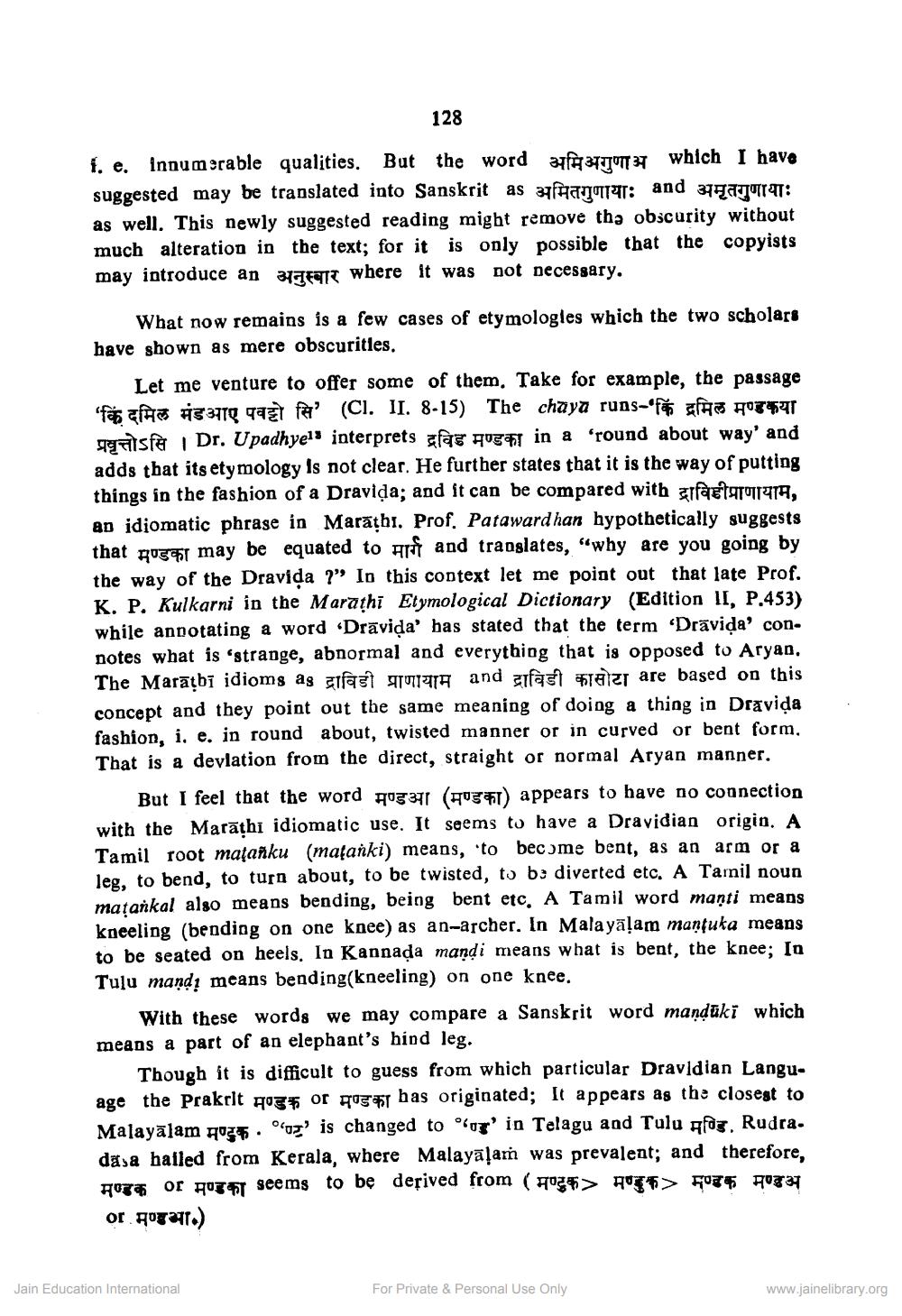________________
128
f. e. innumerable qualities. But the word of 3TUJUT24 which I have suggested may be translated into Sanskrit as अमितगुणायाः and अमृतगुणायाः as well. This newly suggested reading might remove tha obscurity without much alteration in the text; for it is only possible that the copyists may introduce an 3176 where it was not necessary.
What now remains is a few cases of etymologies which the two scholars have shown as mere obscurities.
Let me venture to offer some of them. Take for example, the passage ' f ha 33779 na fa' (CI. II. 8-15) The chaya runs-paga H07441
Transfer | Dr. Upadhyels interprets afas g1 in a 'round about way' and adds that its etymology is not clear. He further states that it is the way of putting things in the fashion of a Dravida; and it can be compared with afael TA, an idiomatic phrase in Marathi. Prof. Pataward han hypothetically suggests that qual may be equated to art and translates, "why are you going by the way of the Dravida ?" In this context let me point out that late Prof. K. P. Kulkarni in the Marathi Etymological Dictionary (Edition II, P.453) while annotating a word “Drāvida' has stated that the term 'Drāvida' con. notes what is strange, abnormal and everything that is opposed to Aryan, The Maratbi idioms as द्राविडी प्राणायाम and द्राविडी कासोटा are based on this concept and they point out the same meaning of doing a thing in Dravida fashion, i, e. in round about, twisted manner or in curved or bent form. That is a devlation from the direct, straight or normal Aryan manner.
But I feel that the word 73 371 (403) appears to have no connection with the Marāļhi idiomatic use. It seems to have a Dravidian origin. A Tamil root mațanku (mafanki) means, to becɔme bent, as an arm or a leg, to bend, to turn about, to be twisted, to bo diverted etc. A Tamil noun matankal also means bending, being bent etc. A Tamil word manti means kneeling (bending on one knee) as an-archer. In Malayāļam manfuka means to be seated on heels. In Kannada mandi means what is bent, the knee; In Tulu mand: means bending(kneeling) on one knee.
With these words we may compare a Sanskrit word mandūki which means a part of an elephant's hind leg.
Though it is difficult to guess from which particular Dravidian Language the Prakrit fogor que has originated; It appears as the closest to Malayālam oz. "oz' is changed to ' in Telagu and Tulu gfog. Rudra. dasa halled from Kerala, where Malayāļam was prevalent; and therefore, मण्डक or मण्डका seems to be derived from (मण्टुक> मण्दुक> मण्डक मण्डअ or qocat.)
Jain Education International
For Private & Personal Use Only
www.jainelibrary.org




